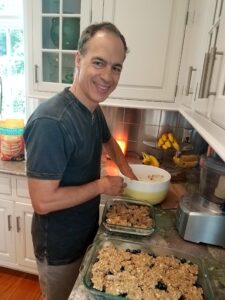Almost daily, we are warned of the dangers of exposure to toxins from pollutants in our air, water, food, home, and workplace. The reality of modern life is that no matter how careful we may be, we are inevitably exposed to a variety of toxins. For many people, knowing that toxins are linked to cancer, cardiovascular, neurological, and other diseases creates a great deal of anxiety.
What most people don’t realize is that virtually any substance can be toxic—even pure water. We’re constantly encouraged to drink plenty of water, but drinking too much water in a short period of time can cause hyponatremia (basically, water intoxication). In severe cases, water intoxication can lead to seizures, coma, and even death.
The example of water as a potential toxin makes it obvious that not all potential toxins are toxic at any level. And it raises the question: Should we take extreme measures to aggressively detoxify and rid our bodies of substances deemed toxic?
Fear and Misunderstanding Concerning Toxins
The reality is that it is impossible to avoid toxins in our modern world (and in truth, there have always been toxic substances in our environment). A vast industry has arisen that plays into the fear and misunderstanding of toxins. Many companies promote products that claim heavy duty “cleansing” of our organ systems, encouraging extreme approaches that can actually cause more harm to the body than the exposure itself.

Continue reading “Can Stress And Low Level Exposure to Toxins Improve Health And Longevity?”








